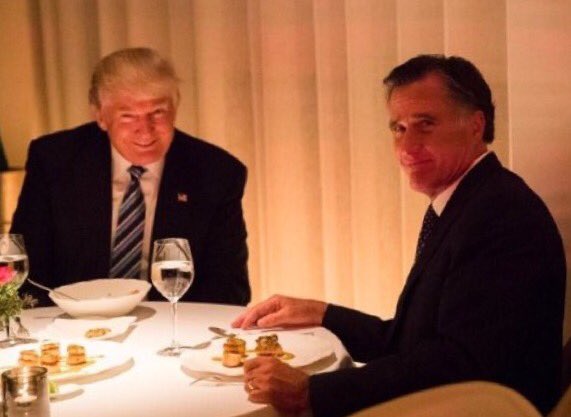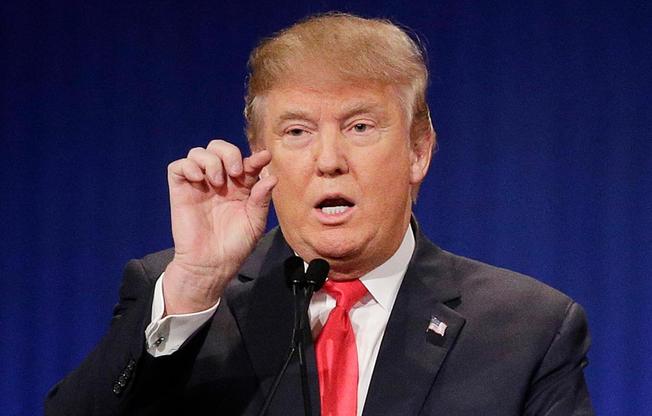(POST BY MANDOS!!!)
The chances were always high that regardless of who was elected, Trump or Clinton, there would be some kind of American attack in Syria. However, the chances were always higher with Trump than Clinton. Yes, you read that right: It was always a lot more likely that Trump would attack Syria than Clinton would. The reason for this is that Clinton took a more hawkish position on Syria before the election. Trump took a right-populist position of focusing on domestic politics and telegraphed a Russia-friendlier course. This more or less convinced me that he was going to attack Syria at some point. Likely, Clinton would have too — but with Trump it was basically inevitable.
Running a complex industrial and military power requires a highly technical bureaucracy. That bureaucracy therefore has an ultimate veto on what is possible to accomplish that is necessarily beyond democracy. That bureaucracy has made it clear that it won’t implement policies by people it doesn’t consider to be “serious.” The hallmark of seriousness is the ability to make the Tough Decision.
(DID I MENTION THAT THIS WAS A POST BY MANDOS? BEFORE YOU COMMENT…)
The complaint by the technocratic class against what it denigrates as “populism” is — among other things — that populism is ultimately the rejection of the Tough Decision. Left-wing populism holds that there are a lot of win-win situations where the benefits to (most) stakeholders far outweigh the costs of participation. Right-wing populism does not believe in win-win propositions, but rather that in a win-lose situation it is effortless to identify who should be on the losing side of the equation and to practically shove the loss onto them. Either way, left- and right-wing populism deny the centrality of the Tough Decision in leadership.
Clinton ran as the anti-populist candidate, presenting herself as the one who would preserve an already-great America through her ability to make Tough Decisions that distributed costs in a way that her supporters wouldn’t always like. Trump ran as a right-wing populist, explicitly riding on the feeling that there were designated “winners” who weren’t winning and designated “losers” who weren’t losing, and proposing solutions whereby this state of affairs could be effortlessly corrected. Insofar as he has attempted to make good on this aspect of this program in a public way, the system has acted against him, because all of the other entities, and that includes the House “Freedom” Caucus, believes in the Tough Decision.
Foreign policy is always the domain in which the right-wing populist can most easily exercise the Tough Decision and win back some loyalty from the managerial class. That is because, in the short run, breaking a promise on a foreign policy or military point is often the one that is lowest-cost to his principal support base. By attacking Syria, Trump proves that he can make a Tough Decision and that he can be “brought to reason” by the policy elite. Clinton would not have had to do this so soon, at least, and would thus have had the confidence of the policy elite that she would “push the button” but would merely be holding off until a strategically more optimal moment. The policy elite seems to have been afraid that Trump would never push the button. That concern has been proven unjust.
The cult of the Tough Decision is killing the world. It is not merely a fetish of a generation of technocrats but deeply engrained into the psychological structure of our society. It stems from a couple of inoffensive common-sense pillars:
- There Ain’t No Such Thing as a Free Lunch
- You Can’t Have Your Cake and Eat It Too
Both of these are narrowly true. Every “free” lunch requires at least some effort to go and obtain it. (1) is merely a recognition that all things have an up-front energy cost. (2) is merely a recognition that once you’ve made a choice, the world changes such that the very same choice is not available a second time in its exact original form. In present-day psychology, we exaggerate these to mean that not merely is there an up-front cost to everything, but it is highly likely that most up-front costs outweigh the benefits — and that there are no win-win situations, because the up-front cost of most choices must result in a major stakeholder losing out.
This exaggeration of common-sense wisdom has come in its most exaggerated form of the fetishization of abstract intellectual exercises from economics and game theory. These exercises are concentrated in the political and managerial elite, but they are constantly reflected in popular discourse and media culture. It is propagated by often very well-intentioned people who would like to make the world better.
Its results are particularly damaging to left-wing populism, because left-wing populism is founded on the existence of low-cost, self-replenishing free lunches — repeated win-win situations. (As opposed to, as I said, right-wing populism, which rejects either the low-cost or the self-replenishing part.) The existence of these free lunches probably sounds like an absurdity even to readers here. Admittedly, they seem to be vanishing quickly, but they are not all gone. Single-payer universal health care in a developed country is one of these free lunches, where the principal payers of the monopsony cost (medical services providers of various sorts, including large organizations) can afford the cost without true suffering.
In a twist of fate, Trump was one of the popular purveyors of the Cult of the Tough Decision in his reality show career. Reality TV, of the “voting off the island” genre, is all about making someone cry in public as a designated loser, and then self-back-patting that it was a responsible or necessary or realistic choice. It is a genre that is emblematic of our era. So it should surprise no one that Trump returns to the ontology of public action that worked out so well for him.




